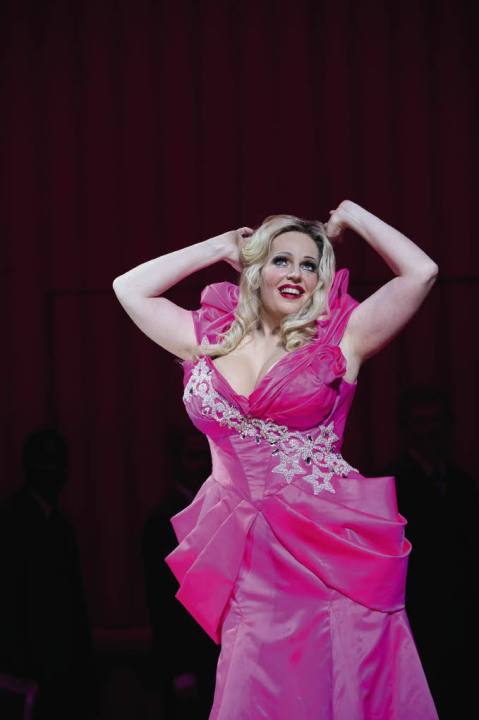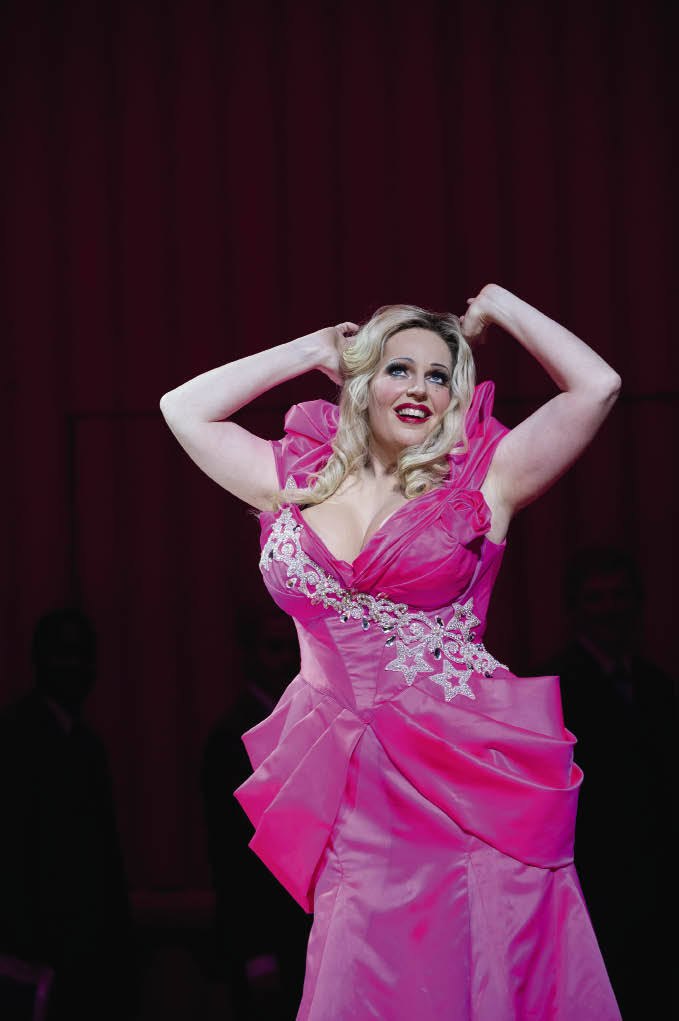The Royal Opera has been both noisy and evasive about Mark-Anthony Turnage’s new opera, Anna Nicole, with words by Richard Thomas of Jerry Springer: the Opera notoriety.
The Royal Opera has been both noisy and evasive about Mark-Anthony Turnage’s new opera, Anna Nicole, with words by Richard Thomas of Jerry Springer: the Opera notoriety. I have never seen and heard so much advance publicity, for any arts event whatever, and yet, apart from telling us that it was to be about the eponymous celebrity, there was very little about the piece that could actually be called information.
There seemed something reflexive about the whole operation, endless articles and interviews, but a void at the centre, which is exactly and obviously what celebrity culture is. The impression was confirmed when, turning up early to read the programme, since the Royal Opera had embargoed even a synopsis of the opera on its website, I watched one weirdly dressed person after another being interviewed and photographed in the foyer, as they held their complimentary drinks; I imagine they were moderate celebrities who had been persuaded to take an interest in the latest example of radical aesthetic chic.
Entering the auditorium was a mild shock. The familiar sumptuous crimson curtains had been replaced by mauvish-pink ones, with AIIR instead of EIIR, and even a picture of Anna Nicole in front of the usual silhouette of the Queen. When the orchestra struck up, conducted by Antonio Pappano, it was in the raucous tones of a Broadway musical, and as the curtains parted, with uniformed guys on the right and girls on the left, Anna reposing in the centre, the sense was of an immaculately staged pastiche.
The story of Anna, all the way up in the first half, though with intimations that she won’t stay at the top, and all the way down in Act II, is presented in comic-strip style, with, at least in Act I, the action and words taking precedence over the music. There is so much text to be got through, so many career moves to be charted, that Turnage can only dutifully scurry along, displaying his long-term affinity with jazz and rock, but not making one original sound. So by the interval I felt that all he was doing was providing a serviceable soundtrack, and nothing that can properly be called opera can be described in that way.
There is a decent quota of indecencies, verbal and acted, of the order of Anna singing to a male cohort ‘I want to blow you all, blow you all…a kiss’; and a sprinkling of four-letter words probably not previously sung on the Covent Garden stage. The scene in which Anna services her 89-year-old second husband takes place behind a sheet. Anyone who loved Jerry Springer might feel short-changed.
Act II is different and more interesting, and not just because misery is more interesting than success. Here, too, Eva-Maria Westbroek, who plays Anna, comes into her own. She throws herself into the role from the start, but there is little vocal sustenance for her in Act I, and she doesn’t quite have the centrefold figure required, even though the breast-enlargement operation produces plausible results. But as she puts on weight, mountainously, and disintegrates, Westbroek, a fine singer of tragic roles, does become involving and somewhat upsetting.
One has to ask how much the story itself — the facts of the matter — is or are upsetting, however it is presented. And the answer is that for all the absurdity and idiocy of the celebrity scene, to watch someone who is too stupid to see what she is doing go to pieces is bound to make an impact. Certainly it makes an impact on Turnage’s music. There is, in the centre of Act II, an interlude which covers the ten years between Anna’s husband’s death and the imminence of her own which is highly wrought, overwrought, Bergian, and instantly moving. And for the last half-hour, as Anna’s own death approaches, what was mostly satire in Act I and much of Act II gives way to a straight portrayal of mounting pain and loss of control.
So in the end this opera becomes the latest in a long line in the history of the genre in which a heroine or anti-heroine perishes and we take whatever kind of satisfaction that we do take in that. The score, interestingly, dies, too, losing colour, volume, vitality, and coming to a mildly surprising stop, rather than end. What it doesn’t lose is melody, since it never had any. That is one of the cardinal musical weaknesses of the piece, that it sends one out of the theatre with nothing musical going on in one’s head: there is no individual idiom, and only a generic sound-world. Thomas and Turnage should surely have asked themselves, as there is no evidence that they did, how interesting is utter vacuity?







Comments